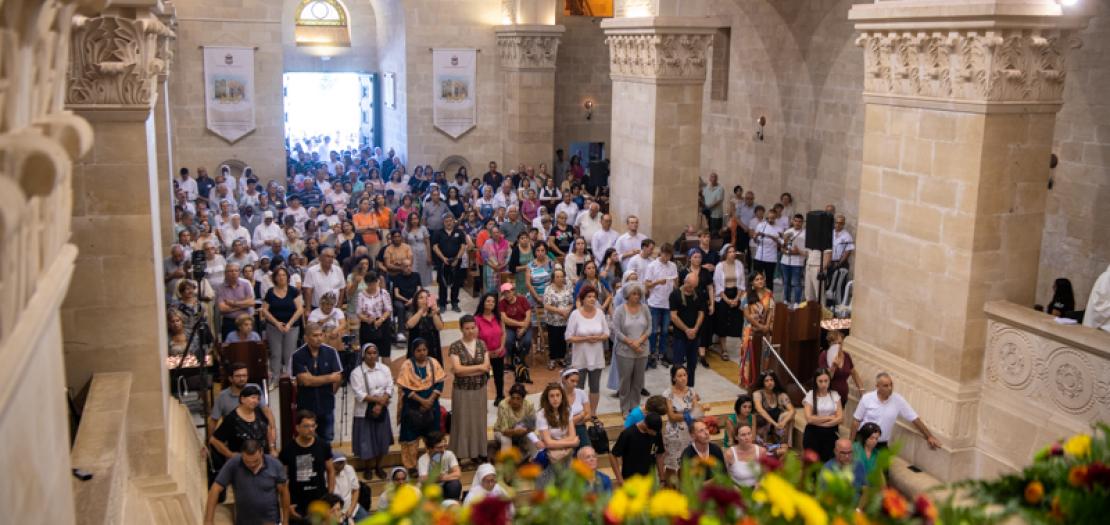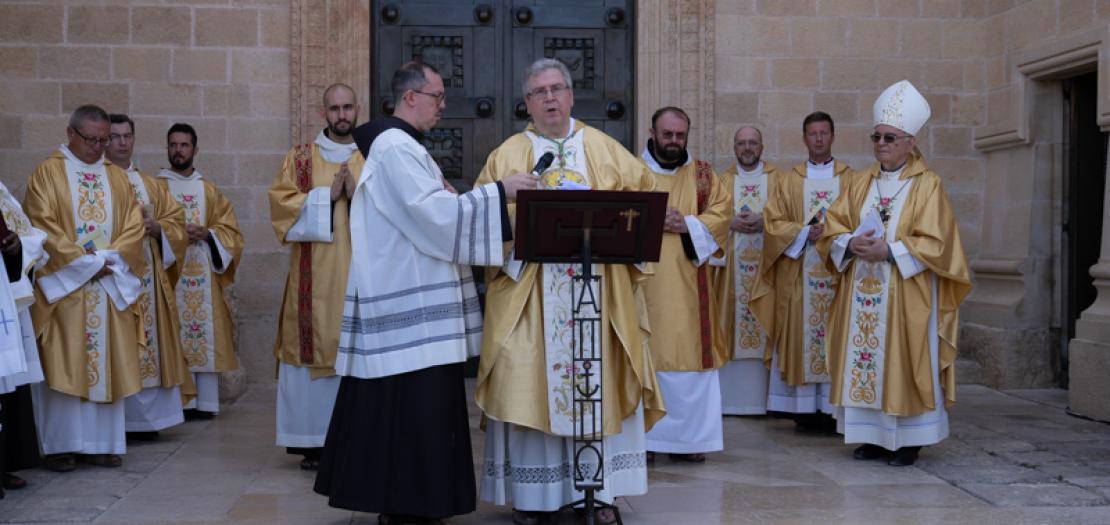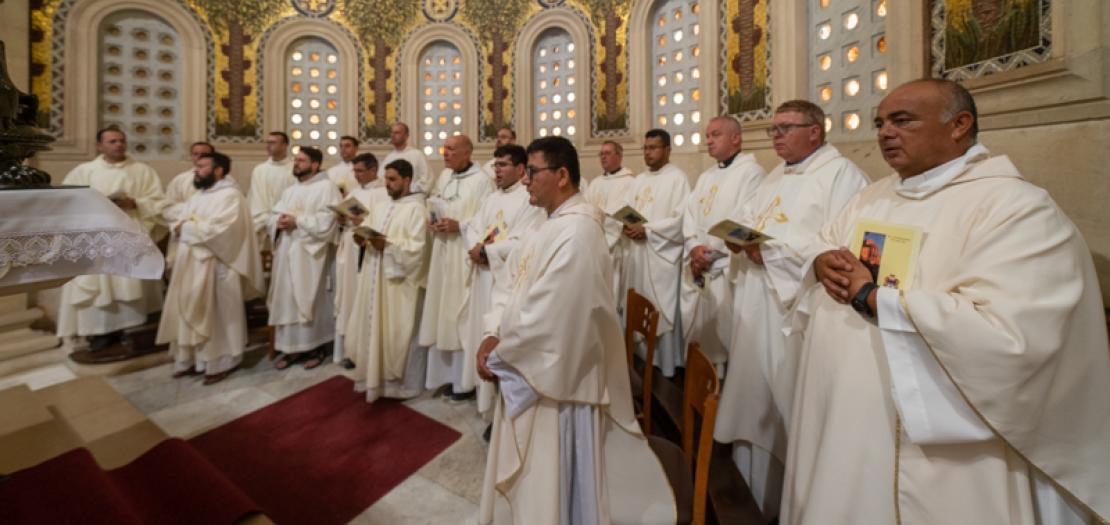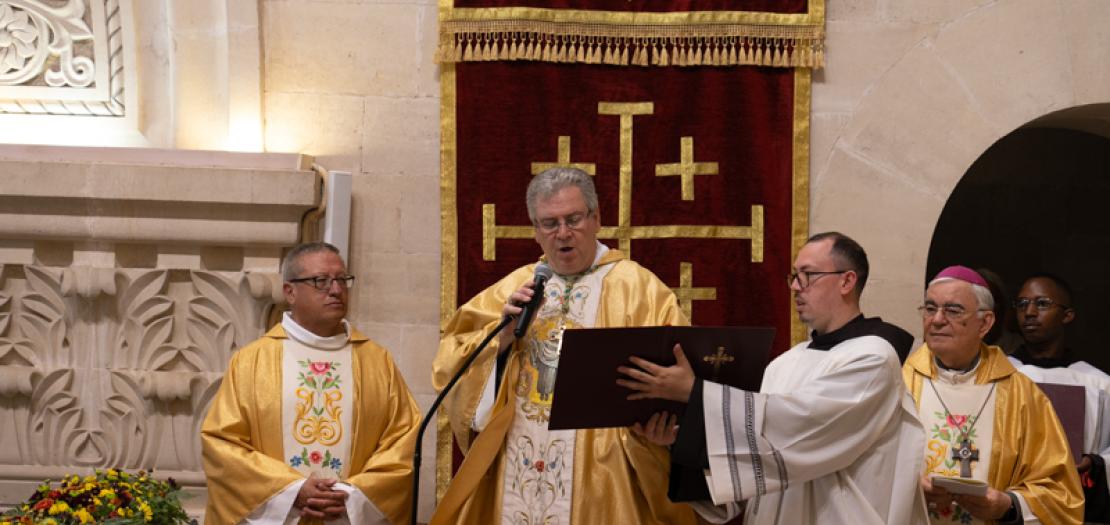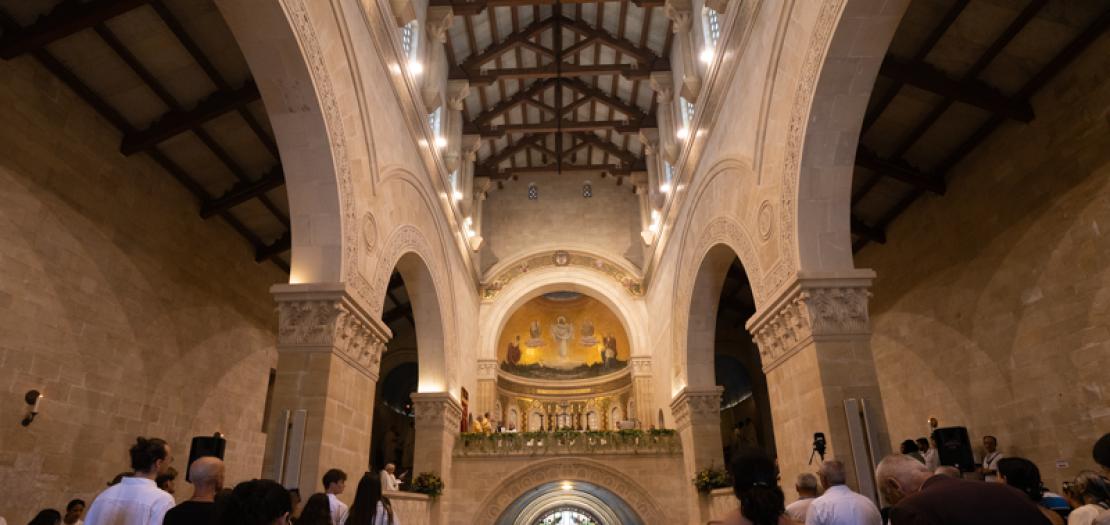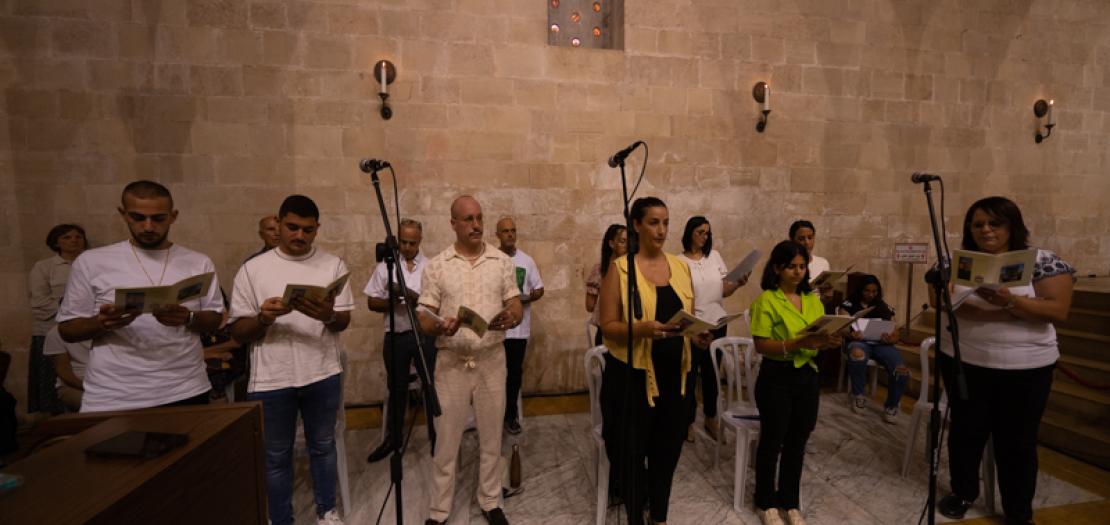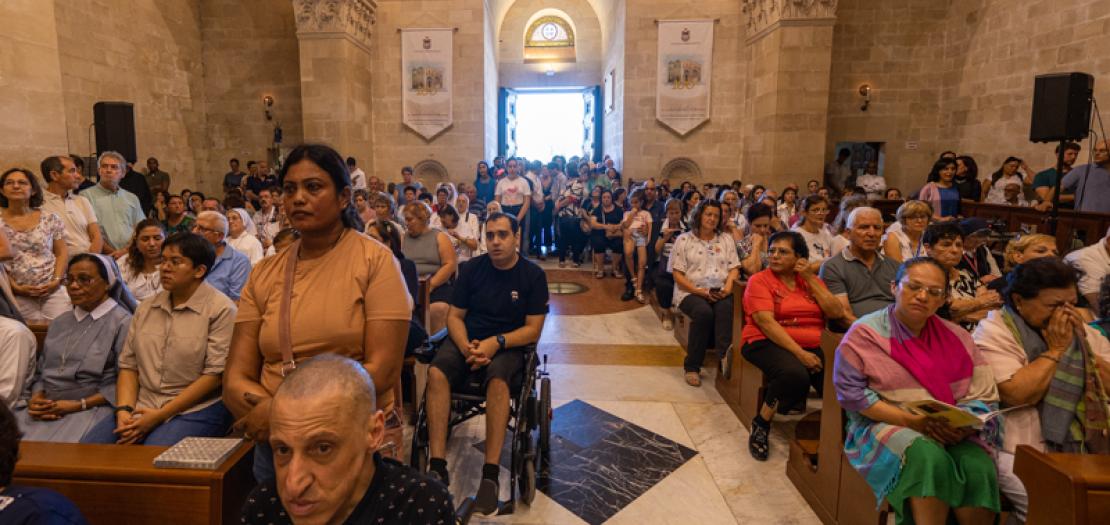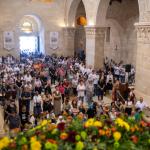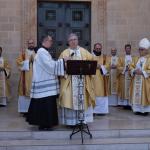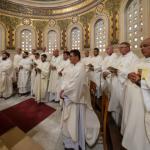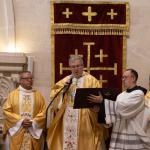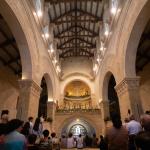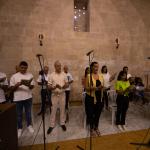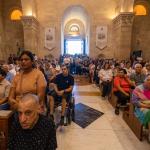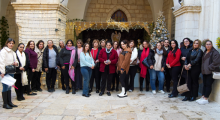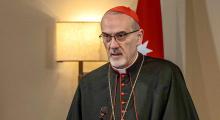Issued by the Catholic Center for Studies and Media - Jordan. Editor-in-chief Fr. Rif'at Bader - موقع أبونا abouna.org
This year, in addition to the solemnity of the Transfiguration of Our Lord, celebrated on 6 August on Mount Tabor, there is an important celebration for the inauguration of the Jubilee of the centenary of the Basilica, completed in 1924 by the architect Antonio Barluzzi on the site of the Benedictine monastery from the time of the Crusades.
The special anniversary, which coincides with that of the Basilica of the Nations on the slopes of the Mount of Olives in Jerusalem, lets the faithful have the experience of indulgence through the pilgrimage to the shrines in the care of the Custody of the Holy Land.
The place of the Transfiguration
From Jerusalem, from Nazareth, from Akko and from the Shrines of Galilee, a huge number of faithful gathered on Mount Tabor, at an altitude of 580 meters above sea level which stands alone in the plain of Esdraelon. This is the place where, according to tradition, starting from St Cyril of Jerusalem in the 4th century, the event of the Transfiguration of Jesus took place “up a high mountain […] his face shone like the sun and his clothes became white as the light. (Matthew 17, 2)
Three churches were subsequently built on this mountain (in memory of the “three tents” that Peter wanted to erect for Jesus, Moses and Elijah) where the monks used to keep vigil, in turns, day and night, in prayer (as the Armenian monk Yeghishe writes in the 7th century). The community of the Franciscans of the Custody settled on the mountain from 1631.
The opening of the Jubilee Door
It was Fr. Francesco Patton, Custos of the Holy Land, who presided over the celebrations and started the Jubilee, with the solemn opening of the Holy Door:” We are here today to open the jubilee of the Centenary of this basilica, the first work by the architect Antonio Barluzzi who built it between 1921 and 1924. The first element of the basilica evoked in situ by the luminous appearance of Jesus in the glory of the Father to the three Apostles could only be light [the speech of the Custos in full is here]. The Apostolic Penitentiary has accepted our request and renewed the possibility of having the experience of indulgence through the pilgrimage to the main shrines which are in the care of the Custody of the Holy Land.”
As is the local custom, numerous Christian families from Galilee gathered at the Shrine as early as the evening before, spending the night in tents to wait in serenity and joy. This tradition goes back to Ottoman times, when the friars owned the place but had the right to go there only once a year, for the Transfiguration.
“The Lord manifests himself to each one of us”
The homily was given by the parish priest of Nazareth, Fr. Ibrahim Alsabagh, who wanted to update the meaning of the event of the Transfiguration, wondering whether the Lord ever appears today to strengthen men in their faith. “We know for sure that the manifestation of the Lord is not limited to the three disciples, but he reveals himself to each one of us to reinforce our faith and give us the strength to bear the cross,” Fr. Ibrahim said. “He appears through his word, through the sacraments and in all his salvific strength. Through his love, Jesus is transfigured in our hearts every time we call him to be filled with the certainty of his identity and to communicate to us all his saving strength we need.”
At the end of the celebration, the friars and the faithful set off in a procession towards the Descendentbus Chapel, at the entrance to the Tabor shrine. The name alludes to the downward journey of the apostles from Mount Tabor: “As they were coming down [descendentibus, in the Latin Vulgate] from the mountain, Jesus charged them, “Do not tell the vision to anyone until the Son of Man has been raised from the dead” (Matthew 17, 9). Here the Custos of the Holy Land gave the friars some twigs from the oak tree of Tabor, an evergreen plant behind the church, a symbol and souvenir of the place and of the celebration, which came to an end with a bountiful convivial moment in the esplanade in front of the Basilica.
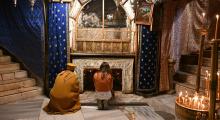 Amid 'fragile’ ceasefire, Caritas Jerusalem seeks to 'replant hope' in Gaza this Christmas
Amid 'fragile’ ceasefire, Caritas Jerusalem seeks to 'replant hope' in Gaza this Christmas 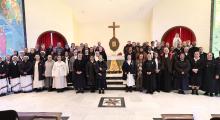 Jordan: Union of Religious Congregations holds meeting to meditate the mystery of Incarnation
Jordan: Union of Religious Congregations holds meeting to meditate the mystery of Incarnation 

